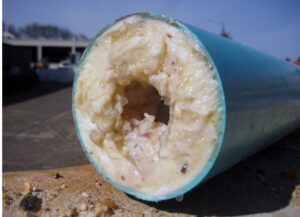
Easter Traditions: Why Not a Chicken?
Have you ever wondered why the Easter Bunny brings eggs — and often sweets — to hide on Easter morning? Why not an Easter Chicken? It turns out, the whole thing may stem from a joke told in 750 A.D. Rumor has it, a famous monk made up a story  about a goddess who turned a bird into a rabbit that lays colored eggs. From there, a candy-ladden tradition began.
about a goddess who turned a bird into a rabbit that lays colored eggs. From there, a candy-ladden tradition began.
Metro Traditions
Here at MetroConnects, we have a tradition of our own: Save those pretty eggshells for our gardens. Not only do crushed shells discourage soft-bodied bugs from nibbling on your greens, but they also provide necessary nutrients such as calcium for your soil. Just sprinkle them in a circle around your most vulnerable plants and voila! If you don’t have any plants to protect, save them for your personal or municipal compost bin. (If you are composting at home, take a few extra steps to ensure the shells break down safely. Learn more about the process at Pete & Gerry’s blog.)
No Eggs Down the Drain
But why are we so insistent here at MetroConnects to reuse those eggshells? To keep them out of your garbage disposal, of course! Contrary to common practice, eggshells should not go down the drain. Neither should cooked eggs, for that matter! The inside of the shells are lined with a thin membrane meant to protect the egg inside. While it is important for a growing baby bird, it can wreak havoc on your disposal when it gets caught up in the blades. Not only that, but when the shells break down, the tiny granular waste they create can get caught up in any sludge that has built up in the pipe and quickly creates a clog.

Fight the FOG
How does that sludge get there, you might ask? From dumping FOG down the drain! FOG, or fats, oils, and greases — including the kind of fat inside a hard-boiled or scrambled egg — might seem to slip easily down the drain. But what you can’t see deep in the pipes is the way it congeals and builds up. This might happen in the pipes inside your home or the street. Either way, as it accumulates, your drains will start emptying slower and slower, eventually backing up into your home.
This Easter, as we all fall for a 1,274-year-old joke and host scavenger hunts for bunny-hidden eggs, let’s also practice a MetroConnects tradition and remember: No eggs down the drain!
If it is too late on your end and you have a backup in your pipe, call at (864) 277-4442.